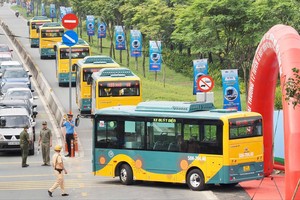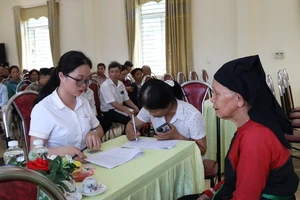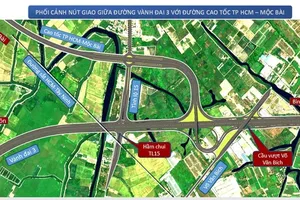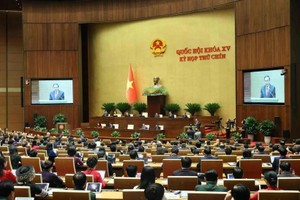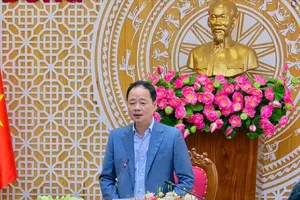The central bank prefers to keep the dong stable but it depends on the structure and efficiency of the economy, State Bank of Vietnam governor Nguyen Van Giau told legislators at the National Assembly’s question and answer session November 17.
He was replying to a question by Le Thi Nga of Thai Nguyen Province on the central bank’s role in the depreciation of the currency. He added that the bank wants to maintain a loose monetary policy but in a cautious manner.
Pham Thi Loan of Hanoi said many businesses faced difficulty in buying US dollars and the exchange rate on the free market is VND300-400 higher than the official rate.
She asked: “Is it true that the official exchange rate is not practical?”
Mr Giau said: “Since 2007 the foreign exchange market has seen complicated developments. Many have called for devaluing the dong, but I think it is dangerous since the national debt is too high – businesses’ debt alone amount to US$17 billion.
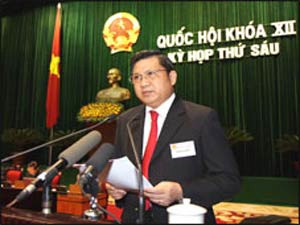
The governor also took questions on the stimulus package and credit growth.
Nguyen Hong Son of Hanoi wanted to know why only 20 percent of businesses have managed to benefit from the Government’s stimulus package.
“The package is intended only for businesses directly engaged in production and exports and employing a large number of workers.” Mr. Giau explained.
But he rejected the 20 percent claim made by Mr. Son, saying the figure was closer to 30 percent: “Around 102,000 businesses have got the subsidized loans while the country has 360,000 businesses according to the Vietnam Chamber of Commerce and Industry.”
Mr. Son said the price of gold had risen sharply for several days until the central bank recently decided to allow the import of gold.
“Was the response too late?”
Mr Giau replied: “We had to weigh the pros and cons before allowing the import of gold. The decision was made in time, not late.”
Nguyen Danh Ut of Kien Giang Province pointed out that under Decision 479, many farmers have failed to get the loan since they need to meet as many as eight conditions.
In response, Mr Giau said the Government has ordered the Ministry of Industry and Trade to amend procedures to help farmers borrow more easily.
Tran Du Lich of Ho Chi Minh City said the Government should not try to boost economic growth by expanding credit. The credit growth is too high at 33 percent and could reach 40 percent by year-end, he said.
“What will the bank do to deal with the situation?” he asked.
Mr. Giau replied: “When the economic situation is normal, the country has seen credit growth at 3.85 times GDP growth. In Indonesia, the rate is 3.2. Our credit growth rate is high, but we have it under tight control.”


